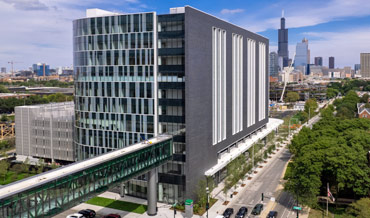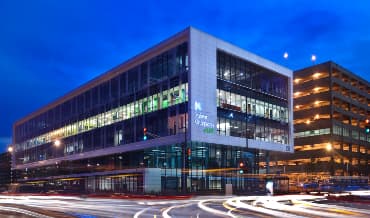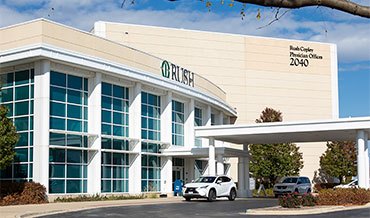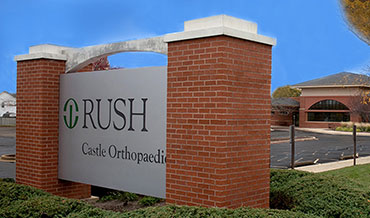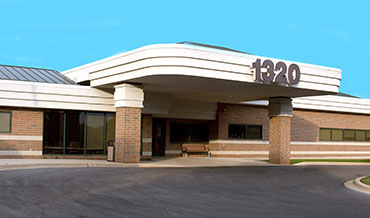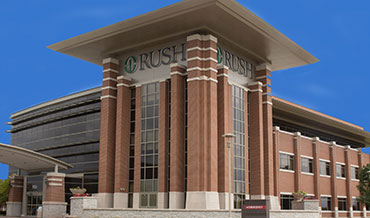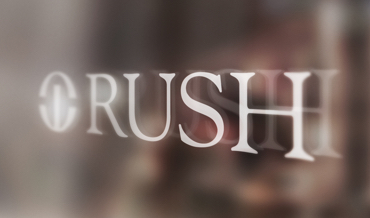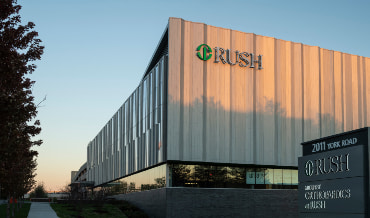In spite of its name, degenerative disc disease is not actually a disease. It refers to the natural process by which the intervertebral discs of the spine change over time.
As part of the normal aging process, our intervertebral discs — the cushions between the vertebrae (bones) that act as shock absorbers and enable complex motions like bending and twisting — begin to dry and shrink.
In some cases, these changes eventually lead to ruptured — or herniated — discs, instability in the spine, and/or narrowing of the spinal canal.
Degeneration can occur at any point in the spine but is most common in the lumbar spine (lower back) and cervical spine (neck).
How Can I Get Help for Degenerative Disc Disease?
These are common symptoms of degenerative disc disease:
- Neck or back pain
- Flare-ups , particularly lower back pain
- Pain made worse by bending, lifting or twisting
- Pain made worse by sitting (for lumbar degenerative disc disease)
- Chronic pain, especially lower back pain or neck pain
- Radiating pain
- Weakness or numbness in your arms or legs
Often, back pain and other symptoms related to degenerative disc disease will go away with the following:
- Rest
- Restricting the activities that cause your pain
- Over-the-counter pain relievers (e.g., acetaminophen)
If the above does not help address your pain, Rush spine and back specialists can help.
Degenerative Disc Disease Treatment at Rush
Nonsurgical Treatments
Spine and back specialists at Rush first try nonsurgical methods to relieve symptoms:
- Stretching or physical therapy
- Anti-inflammatory medication (taken by mouth)
- Spinal injections of medication (typically steroids or anesthetic drugs) directly into the source of pain
Surgical Options
Degenerative disc symptoms may not always respond to nonsurgical approaches. In that case, surgery may be needed.
Common surgeries for degenerative disc disease include the following:
- Decompression: Removal of a displaced disc or overgrown bone to free pinched nerves
- Fusion: Building a bone bridge to provide stability and prevent painful motion. Whenever possible, spine surgeons at Rush perform spinal fusions using minimally invasive approaches that help you heal faster and with less pain.
- Deformity correction: Addresses abnormal curvatures
- Placement of implants: This could include spacers, artificial discs and nerve stimulators
Your spine specialist will discuss your options and help determine the optimal procedure for you based on your general health, severity of symptoms and personal goals.
Rush Excellence in Degenerative Disc Disease Care
- Nationally recognized programs: Rush University Medical Center's neurology and neurosurgery and orthopedics programs are ranked among the nation's best by U.S. News & World Report.
- A trusted source for second opinions: If you are diagnosed with degenerative disc disease, we encourage you to seek a second opinion — especially if surgery has been recommended to address your pain. Our experts will make sure you're aware of every available treatment option and are comfortable with the course of treatment.
- Renowned spine surgeons: Rush spine surgeons offer and, in many cases, helped pioneer advanced spine surgery techniques. This includes minimally invasive approaches that help you leave the hospital sooner, heal faster and experience less post-surgery pain. Our expertise is one reason why more patients choose Rush for spine care than any other health system in Illinois.


